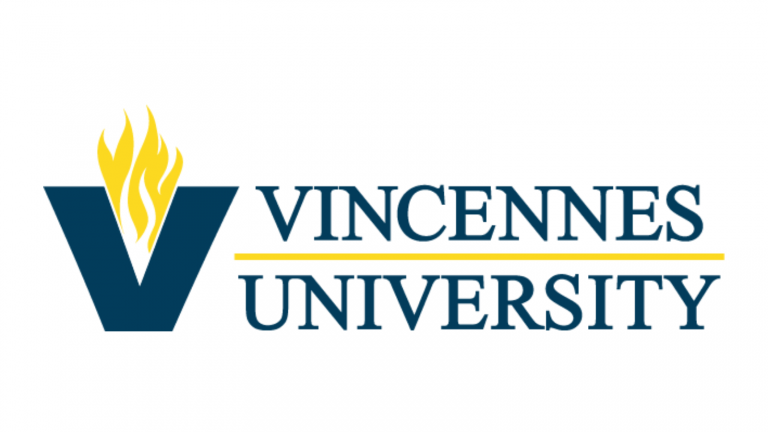Vincennes University has received a grant of $8 million from Lilly Endowment Inc. through the competitive Phase 3 of its initiative, Charting the Future of Indiana’s Colleges and Universities. The grant will help VU build a talent pipeline for “Industry 4.0” in advanced automation and collaborative robots, or cobots, and support the creation of the Center for Applied Robotics and Automation.
Industry 4.0 is the combination of traditional manufacturing and industrial platforms and practices with the latest smart technology.
VU will focus on the emerging technology of cobots. These smaller industrial robots are designed to safely interact with humans in a shared workspace. Cobots can be additional support for workers, giving them an extra set of hands in the shared workspace. Their use can increase safety, production, and efficiency.
VU is one of 16 Indiana colleges and universities that will be supported by funding in the final phase of Charting the Future, an initiative designed to help colleges and universities in Indiana assess and prioritize the most significant challenges and opportunities they face as higher education institutions and develop strategies to address them.
According to VU President Dr. Chuck Johnson, “Thank you to Lilly Endowment Inc. We are thrilled that Vincennes University is a grant recipient of Charting the Future for Indiana’s College and University initiative. These are transformational times in Indiana and globally. This grant elevates and accelerates our work with many partners in helping students gain new and modern skills suitable for 21st-century jobs. This is an incredible opportunity to help shape the future of the state’s economy and workforce.”
In collaboration with the University’s partners, including Telamon Corporation and Techman Robot, VU plans to develop a workforce ecosystem for Industry 4.0 in Indiana with the Center for Applied Robotics and Automation serving as a training lab and hub for the development of curricula and credentials related to cobots throughout the state. The center will provide training for students in manufacturing and logistics.
The grant will also help VU expand its ongoing efforts to develop and promote Industry 4.0 education and training to K-12 students.
Cobot learning labs will be deployed/set up at sites in Vincennes, Jasper, and Central Indiana, as well as in career centers throughout the state.
VU anticipates offering scholarships to students enrolling in traditional academic programs leading to credentials and degrees. It also plans to extend endeavors to reach students by engaging them in STEM-focused programming, building on existing partnerships with CTE educators throughout the state and VU’s collaboration with Purdue’s Indiana Manufacturing Competitiveness Center (IN-MaC). In conjunction with those efforts, the University intends to develop cobot competitions and boot camps to promote Industry 4.0 technologies and engage educators, students, parents, and employers.
The grant will also support VU’s ground-breaking work with ElevenFifty Academy in the development of Indiana’s cyber security workforce. A portion of the grant will fund a Progressive Income Share Agreement (PISA) an innovative alternative for providing financial assistance to students enrolled in the joint ElevenFifty/VU program.
“Indiana’s colleges and universities face myriad challenges as they work to fulfill their educational missions while adapting to growing financial pressures, rapid demographic and technological changes, and evolving needs and demands of students,” said Ted Maple, the Endowment’s vice president for education. “We are pleased with the creative and collaborative approaches the colleges and universities are taking to address these challenges and seize opportunities to better serve their students, institutions, communities and the state of Indiana.”
Lilly Endowment launched the three-phased Charting the Future initiative in 2019 to help leaders of the state’s 38 colleges and universities engage in thoughtful discernment about the future of their institutions and to advance strategic planning and implementation efforts to address key challenges and opportunities. Collaboration was encouraged, especially in the third phase of Charting the Future, and several schools proposed collaborative programs and strategies. Through three phases of grantmaking, Lilly Endowment awarded more than $138 million to the schools.
Through earlier rounds of the initiative, all 38 schools received planning grants, which were approved in December 2019, and implementation grants approved in June and September 2020. The implementation grants funded strategies to improve efforts to prepare students for successful futures and strengthen the schools’ long-term institutional vitality.

